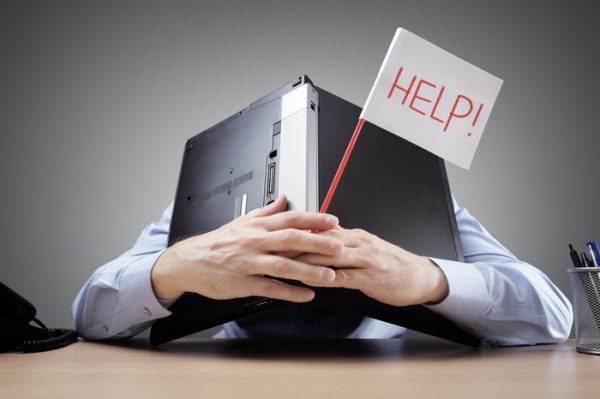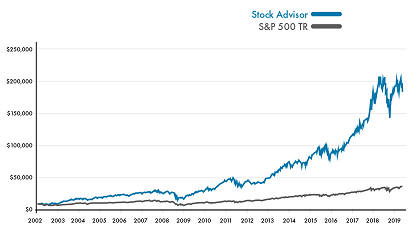Click here for a message from The Motley Fool Co-Founders Tom and David Gardner.
These tips help at work, at home, and in your social media feeds.
This article originally appeared on InHerSight.com, a website where women rate the female friendliness of their employers and get matched to companies that fit their needs.
We’ve heard a lot so far about what the novel coronavirus can do to our bodies, but as the stress of a pandemic continues to weigh on our communities and our workforce, we increasingly need to focus on how COVID-19 affects our mental and emotional health.
The CDC has outlined specific signs of stress to watch out for during a global health crisis, including fear and worry about your health or the health of your friends and family, changes in sleep or eating patterns, difficulty sleeping or focusing, worsening of other chronic health problems, and increased use of alcohol, tobacco, and other drugs. But how you manage that stress in relation to your job isn’t simply about “being gentle with yourself” when you’re not being productive (although that helps). This is bigger than that.
You need to treat the stress and anxiety you, your team, and your loved ones are feeling during this time like another strand of the virus — one you should take preventative and proactive measures to guard against. These are some of the ways you can practice self-care and wellness during the coronavirus outbreak.

Image soure: Getty Images.
Take care of your body
You’re washing your hands for 20 seconds or more. Excellent. Now let’s talk about your food and your fitness. The CDC is telling people to eat well-balanced meals and to work out at home or go for walks or runs outside if they can. As always, a healthy diet and movement are good, as long as both are done six feet away from other people.
However, we know many foods are limited right now, as is outside time and access to fitness equipment. That’s OK. You can do body weight workouts in your living space, stream videos from fitness influencers on Instagram or YouTube, or do jumping jacks between conference calls. Just get your heart rate up.
As for your diet — go easy on yourself. There’s a lot that’s out of your control. Play with different recipes using what you have, and whenever possible, eat foods that make you feel strong. Your body might change a little while we’re in quarantine, but everyone’s will.
Trust your news sources
This is not a time to trust watercooler chatter. There are many unqualified people disseminating information right now, and their inaccurate updates and postulations only serve to increase anxiety because they cause more unnecessary conflict. Think critically about who your news sources are and the credentials they have that make you believe what they have to say. For instance, my go-to source is James Hamblin, one of the staff writers at The Atlantic, because he’s an M.D. who writes about public health all the time. He’s written books about the human body and is covering coronavirus from New York City. Do your research.
Take breaks from news stories
If we learn anything besides proper hygiene practices during this pandemic, it will be that detoxes from social media and the news are crucial to protecting our mental health. While it’s important to stay up to date on what’s happening in the world around you, it’s easy for “staying informed” to become “staying obsessed.” Turn off your TV. Turn off your phone. Close this article immediately if you feel that’s necessary. Talk about something, anything, other than coronavirus.
Avoid overworking
This is easier said than done. If you’re a working parent with kids at home, still going into work because you’re an essential employee, or working late because your living room is now your office, you’re likely to burn yourself out if you push too hard. Now is the time to create structure: Divide up caretaking with your partner if you have one, enforce strict working hours, and schedule time to unwind. Create boundaries with your work, both paid and unpaid. Then sleep. Sleep, sleep, sleep. Give your body time to recharge.
Call someone
This one is easy enough. Set aside time to catch up with people you care about — your friends, family, co-workers, whomever. Checking in with others not only helps you stay connected, but it also reminds you that you’re not alone in your anxiety, which is comforting and validating. After you’ve chatted briefly about your shared concerns (calling out the elephant in the room, if you will), move on to something lighter. What shows are they watching right now? What about podcasts? Have they tried any new recipes lately? What random or ridiculous food did they panic-buy at the grocery store amid the coronavirus fears?
Ask for help
If you’re struggling, talk to your boss or manager about taking a mental health day or personal day to give yourself time to refocus, or about adjusting work expectations during the pandemic. No one should expect you to perform your role as if these are normal circumstances; they are not. Managers, expect your team to have unexpected needs right now.
Beyond workflow, consider reaching out to a telemedicine provider for therapy sessions (your health insurance or employee benefits might cover it), or call a helpline like SAMHSA (Substance Abuse and Mental Health Services Administration), which provides “free and confidential treatment referral and information about mental and/or substance use disorders, prevention, and recovery in English and Spanish 24 hours a day,” at 1.800.985.5990.
6 Ways to Care for Mental and Emotional Health During the Coronavirus Outbreak @themotleyfool #stocks Next Article



